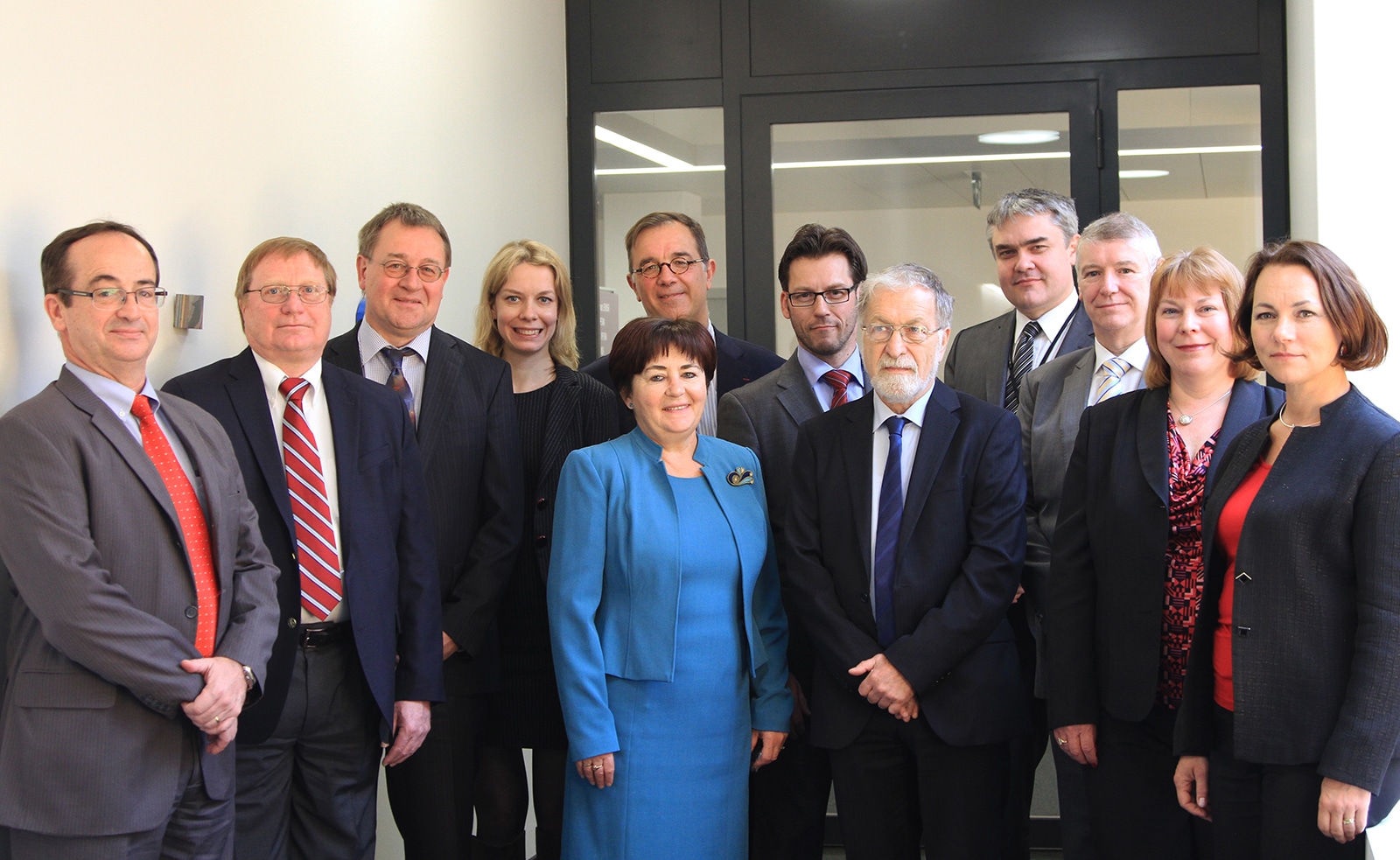More power and competences should be given to ENSI, IAEA experts say
 The Swiss Federal Nuclear Safety Inspectorate (ENSI) should be the only authority to make the final decision on issues related to the safety of nuclear installations. In the course of a follow-up mission by the Integrated Regulatory Review Service (IRRS), experts from the International Atomic Energy Agency (IAEA) re-emphasised this recommendation, which dates back to 2011. They also expressed their satisfaction with the implementation of the recommendations addressed to ENSI.
The Swiss Federal Nuclear Safety Inspectorate (ENSI) should be the only authority to make the final decision on issues related to the safety of nuclear installations. In the course of a follow-up mission by the Integrated Regulatory Review Service (IRRS), experts from the International Atomic Energy Agency (IAEA) re-emphasised this recommendation, which dates back to 2011. They also expressed their satisfaction with the implementation of the recommendations addressed to ENSI.
The team of high-ranking international experts from other nuclear regulatory authorities found that their recommendations regarding ENSI’s role based on the IRRS mission at the end of 2011 had not been implemented adequately. Jean-Christophe Niel, Head of the IRRS Mission and Director of ASN, the French nuclear regulatory authority, stresses: “The mission concluded that ENSI, as the technical nuclear safety authority, should be given the ability to issue legally binding technical safety requirements and licence conditions on nuclear safety, security and radiation safety.”
At the end of their ten-day review mission, and on the basis of international safety requirements and standards, the experts therefore re-iterated their recommendation that ENSI’s powers and competences should be increased. The specialists from France, the USA, Brazil, Norway, Finland and Germany also recommend that the Swiss Federal Nuclear Safety Commission (NSC) should submit its comments, statements and recommendations solely to ENSI, in an open and transparent manner, thereby strengthening ENSI’s position as the competent technical authority for nuclear safety in Switzerland.
Text of the recommendation
- strengthen ENSI’s independent regulatory authority by giving ENSI the ability to issue binding technical safety requirements and licence conditions on nuclear safety, security and radiation protection, and
- strengthen ENSI’s position as the competent, technical authority, by having NSC provide their technical safety input to ENSI solely in an open and transparent manner.
IRRS team satisfied with ENSI’s implementation of recommendations
All of the four recommendations and 16 suggestions for whose implementation ENSI was mainly responsible were regarded as fulfilled. Jean-Christophe Niel notes: “The strong commitment of ENSI to address the issues raised in the 2011 IRRS mission is evidenced by the progress made. The team found ENSI to be a established and competent nuclear safety regulator.” The experts expect ENSI to continue to make progress with any issue, which has not yet been entirely completed.
In this respect, ENSI Director General Hans Wanner highlights: “The recommendations and suggestions have played their part in enabling us to continue improving our work as regulatory authority.” Following the IRRS mission at the end of 2011, ENSI drew up an action plan and worked consistently on implementing the issues that were addressed. “International review missions are valuable for Switzerland because they represent an international measuring stick on the way nuclear oversight should be executed,” Hans Wanner continues.
There was also renewed recognition for ENSI’s reaction to the nuclear accident at Fukushima. ENSI has systematically deduced its lessons learned and has applied them to the nuclear installations in Switzerland.
IRRS already confirmed ENSI’s independence in 2011
During its review in 2011, the IRRS mission had already established ENSI’s full independence. The conversion of the regulatory authority into an institution under public law independent from the Swiss Federal Department of Environment, Transport, Energy and Communications (DETEC) and the Swiss Federal Office of Energy (SFOE) signified that “a key requirement of the Convention on Nuclear Safety was met.” The Convention calls for effective separation of safety authorities from bodies that deal with energy policy and the use of nuclear energy.
ENSI will publish the mission’s final report
ENSI will also publish the follow-up mission’s report as soon as the finalised version is available. It is likely to be released in the summer. “ENSI will undergo international scrutiny periodically and as requested by Swiss law at the latest every 10 years,” says Hans Wanner. Currently, it is planned that ENSI will undergo another IRRS mission in about six years’ time.

